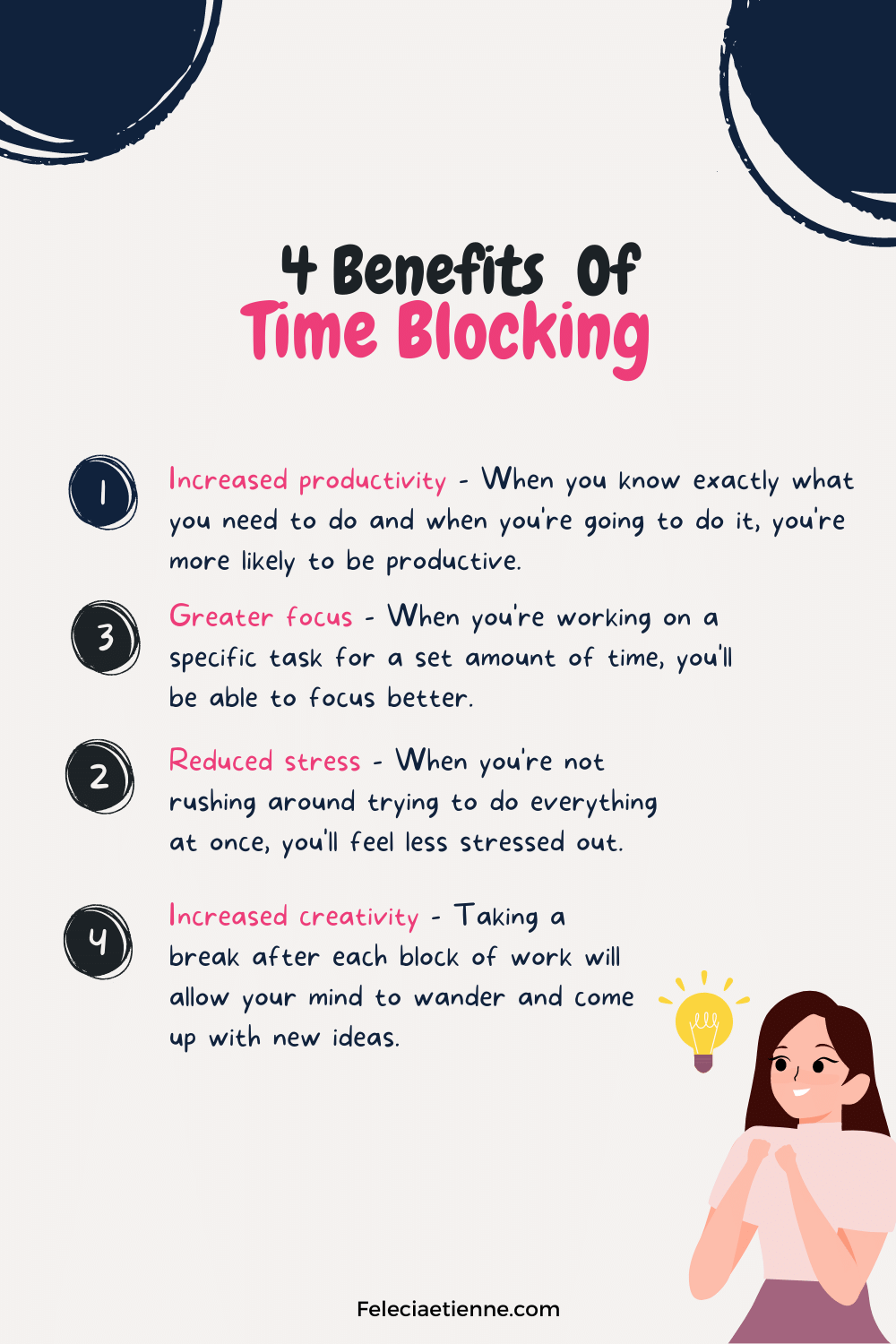7 Ways To Optimize Your Daily Routines For Maximum Productivity
Are you constantly struggling to find enough hours in the day to get everything done? Do you feel like you're always behind schedule and never quite caught up? Are you looking for ways to increase your productivity and maximize your time? If so, you're not alone. Most entrepreneurs and leaders are always looking for new techniques and strategies to help them level up and thrive. But don't worry – there are ways to optimize your daily routines for maximum productivity.
Ready to get started? Awesome! Let's go…
So what are routines, and why are they important?
Nothing beats the feeling of starting your new day with a fresh cup of coffee or tea and a well-optimized routine. So what does it mean to have an optimized routine?
As any successful person will tell you, routines are essential for maintaining focus and achieving goals. But why is that? After all, isn't it more fun to live life on a whim? While that may be true in the short term, a well-organized routine can help you accomplish much more in the long run. Studies show that 40% of our actions are powered by our routines/habits. For one thing, routines help to minimize decision fatigue. Establishing set behavior patterns can conserve mental energy for more critical tasks.
In addition, routines help to increase productivity by creating an environment in which it is easier to take action. You can simply follow the plan and get things done when you know exactly what needs to be done and when it needs to be done. Finally, a daily routine can help you achieve laser-like focus by reducing stress and increasing your productivity. When you have a plan for each day, you are less likely to waste time on things that don't matter. If all these reasons aren't enough, a daily schedule allows you to tap into a happier and more efficient version of yourself.
1)How to optimize your daily routine for maximum productivity
1) Create a morning routine that works for you:
Everyone is different, and no single morning routine works for everyone. However, some basic elements can help to make any morning routine more effective.
Here are three ways to optimize your Morning Routine for maximum productivity:
First, it is important to have a set time to wake up each day. This will help to establish a regular sleep schedule and make it easier to get out of bed in the morning.
1. Plan your day.
There's nothing like waking up in the morning knowing you have a plan for the day. No scrambling to find your clothes or make breakfast, just a calm and confident start to the day. But how do you achieve this level of organization? The key is to plan your day the night before. You can save precious time in the morning by taking a few minutes before bed to review your schedule and lay out your clothes. You'll also be less likely to forget important items like your coffee or laptop. So if you're looking for a way to optimize your morning routine, try planning your day the night before. You may be surprised at how much difference it makes.
2. Take some time for yourself.
Finally, it is important to take some time for yourself each morning. This can be used for things like reading, writing, or meditating. Allowing yourself time to relax and recharge each morning can help you feel refreshed and ready to tackle Whatever the day may bring.
3. Get moving.
For many people, mornings are the most challenging part of the day. It can be hard to get out of bed and face the day ahead. However, one simple step can make a big difference: exercise. Just a few minutes of physical activity can help to boost energy levels and get the blood flowing. In addition, exercise releases endorphins, which have mood-boosting effects. So, if you struggle to get going in the morning, make time for a quick workout. You may be surprised at how much it helps.
Related Article: 13 Simple Goal Setting Techniques that work even when you feel uncertain
2) Set aside time for deep work to optimize your daily routines for maximum productivity:
One way to optimize your daily routine for maximum productivity is to set aside time for deep work. Deep work is a term coined by Cal Newport that refers to the ability to focus without distraction on a cognitively demanding task. This work requires intense concentration and is often essential for creative or analytical tasks. Although sustaining deep work for extended periods can be challenging, setting aside even a few hours each day can dramatically impact your productivity.
Here are three ways to incorporate deep work for maximum productivity:
1. Set a schedule:
Dedicate specific times of the day or week for deep work. Studies show that performance and productivity are at their optimum during 90-minute intervals. During the 90-minute time block, focus on one task and avoid distractions.
2. Find a quiet place:
Find a place where you can work without distractions. Let others around you and or your team know you'll be off the grid, so you can focus without being interrupted.
3. Turn off electronics:
Turning off electronics can be tough, but limiting distractions and giving yourself 60-90 minutes to focus on a single task is essential. Remove all electronic devices from your workspace and put them away before you begin working.
3. Set a goal:
What do you want to accomplish during your deep work session? Having a specific goal will help you stay focused and on track.
What are you waiting for? Set aside time for deep work and enjoy your optimized productivity.
3) Take breaks to optimize your daily routines for maximum productivity
In addition to deep work, it is also important to schedule breaks into your day. It may seem counterintuitive, but taking breaks can help you be more productive and reduce stress. When we focus too long, our brains become tired and less likely to retain information. Regular breaks give your brain a chance to rest and recharge, which will help you avoid burnout and allow you to return to your work with fresh energy and ideas.
Here are three ways to incorporate taking breaks into your routine for maximum productivity:
1. Take a quick walk:
Getting fresh air and moving your body will help clear your mind and boost your energy levels.
2. Meditate:
Taking a few minutes to focus on your breath can help to center yourself and reduce stress.
3. Connect with nature:
Spend a few minutes outside, surrounded by trees, flowers, and other greenery. Studies have shown that exposure to nature can help reduce stress levels and improve cognitive function.
So next time you're feeling overwhelmed or burned out, take a break! It just might be the best thing you can do for your productivity.
Related Article: 13 ways to overcome Self-Doubt and Thrive
4) Time block your schedule to optimize your daily routines for maximum productivity
One way to make the most of your time is to block your schedule. Time blocking is a technique where you schedule specific activities for specific periods of time. Time blocking can help you focus on one task at a time and avoid multitasking, leading to optimized productivity. By dedicating specific periods to specific tasks, you can ensure that you make the most efficient use of your time. For example, you may want to block out an hour to answer emails, two hours to work on a project, and one hour to eat lunch and take breaks. By blocking out your time this way, you can ensure that you are staying on task and making the most of your day. Time blocking can be an essential tool for anyone looking to optimize their daily routines for maximum productivity.
Here are three ways to incorporate time blocking into your routine for maximum productivity:
1. Set aside time for a dedicated weekly review where you plan and prioritize your task:
During this time, you review upcoming tasks or projects and plan your time blocks for each day. This allows you to optimize your productivity and reduce decision fatigue.
2. After organizing and prioritizing your task, assign each task a specific time slot.
This will help you stay on track and prevent you from getting sidetracked by less important tasks.
3. Be flexible:
Don't be afraid to adjust your schedule. If something comes up that you didn't plan for, be willing to move your time block. A best practice is at the end of your workday to review any unfinished task or task that needs to be rescheduled and adjust your time blocks for the week to accommodate it.
4. Keep it simple:
Start small and gradually increase the number of activities you time block as you become more comfortable with the process.
5) Eliminate bad habits to optimize your daily routines for maximum productivity
Everyone has at least one bad habit that they would like to break. Bad habits can be a significant barrier to productivity, whether biting your nails, procrastinating, or spending too much time on social media. Fortunately, there are a few simple steps that you can take to eliminate bad habits and optimize your daily routines for maximum productivity.
Start by identifying the bad habit that you want to break. Once you know what it is that you need to change, you can start working on developing new, healthier habits. One effective way to do this is to keep a journal and track your progress. Each day, make a note of how many times you engage in the bad habit and what triggers it. Then, work on finding alternatives to the bad habit that will help you avoid the trigger. For example, if you find yourself mindlessly scrolling through social media when you're bored, try reading a book or taking a walk instead.
Here are three ways to eliminate bad habits so you can maximum productivity:
1. One way to stop a bad habit is to set limits that gradually lower your time spent engaging with the activity.
For example, if you want to stop watching so much television, start by reducing your time by 25%. Then, reduce your time by another 25% every week or two. Eventually, you will reach an acceptable level or eliminate the habit. Working with one habit at a time is often best, so you don't get overwhelmed by changing too much.
2. Be patient.
Breaking a habit takes time and effort. Don't get discouraged if you don't see results immediately. Just keep working at it, and eventually, you will succeed.
3. Get support.
Talk to your friends and family about your goal, and ask for their help and encouragement. Having someone to support you can make all the difference in the world.
So, if you're looking to break a bad habit, remember to be intentional with your time and make a plan to reduce your engagement with the activity gradually. This method may take some time, but it will eventually help you kick those bad habits for good!
6) MANAGE YOUR TIME to optimize your daily routines for maximum productivity
As you schedule appointments and meetings into your day, you must also schedule time for yourself. Whether it's time to exercise, relax or simply check off some items on your personal to-do list, setting aside time for yourself will help you feel refreshed and recharged. And when you're feeling good, you're more likely to be productive.
In addition to scheduled "me time," it's also important to be mindful of how you spend your time throughout the day. Are you spending too much time on email? Social media? If you find yourself frequently getting distracted, try setting a timer for a specific time and focusing on a task until the timer goes off. Once you get in the habit of staying focused, you'll be amazed at how much more you can get done in a day.
By taking some time to optimize your daily routine, you can set yourself up for success. And when you're successful, everyone around you benefits. So don't be afraid to put yourself first - it's important to take care of yourself to take care of others.
Here are some tips to help you manage your time:
It's super easy to lose track of time, even if you plan your day the night before. You can identify areas where you want to improve by proactively tracking how you spend your time. This can be done by using a time-tracker online or manually recording how you spend every hour of your day. By mapping out your waking hours, you'll be able to create time frames that work for your daily responsibilities. Time management will also make you aware of how procrastination impacts your days. Consequently, implementing better time management strategies can help improve your overall productivity and quality of life.
7) Minimize distractions to optimize your daily routines for maximum productivity
Feeling distracted? The struggle is REAL. I've been working on building out a virtual entrepreneurs conference, and life keeps interrupting my progress. During times like these, I've found a productivity hack that helps me stay focused. It's called the Pomodoro Technique, based on the theory that if you break down your work into manageable chunks and take regular breaks, you'll be more productive overall. Here's how it works: you set a timer for 25 minutes and work on a task until the timer goes off. Then you take a 5-minute break. Rinse and repeat for 4 Pomodoros, and then take a longer break (15-30 minutes). The key is not to get discouraged if you can't complete a task in one Pomodoro - just move on to something else and return to it later. Give it a try and see how it works for you!
Related Article: How to hold yourself accountable as a leader: 5 powerful tips
Conclusion:
Leaders are not born; they are made. And in order to be the best leader you can be, it’s important to cultivate habits that will supercharge your results. We hope this article has given you some tools to work on and that you will continue to strive for excellence in all you do. Remember, leaders are never perfect, and they always have room to grow. The resilience toolkit I’ve put together for entrepreneurs and professionals will help you do that. Take some time to assess where you are now and where you want to be. What are some of the habits you need to work on? Click here to download your get your resilience toolkit now.













